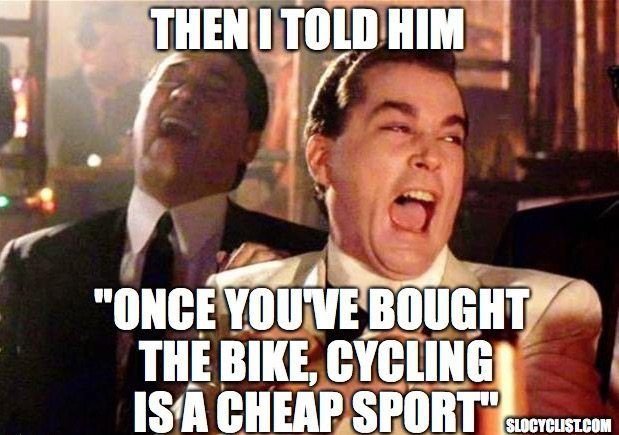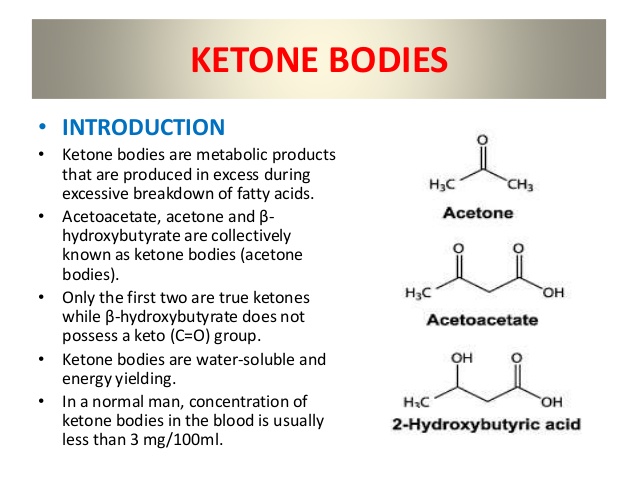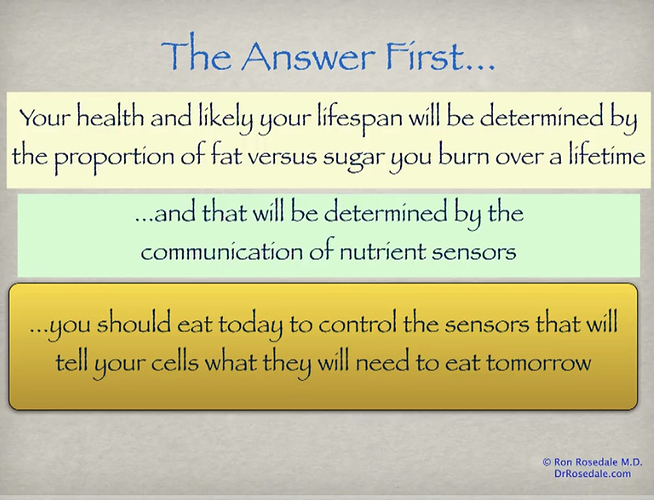As a personal trainer and long time fat adapted athlete, occasionally it will occur to me that even within the progressive low carb space there’s a commonly accepted belief that seems to be contradictory. It struck me recently that many “experts” in fitness and nutrition advise against doing “chronic cardio.” This is usually defined as longer bouts of low heart zone exercise like running, cycling, etc., on a regular basis. As a runner I would be considered guilty of training in this way, by virtue of me doing moderate distance races to improve my time and work on keeping up my fitness. So I run 4-6 days a week usually, depending on my recovery, sleep, stress… I also use some low impact cardio machines at the gym in addition or as a substitute if the weather is bad. Over the course of a week I probably do 7-9 hours total of cardiovascular exercise plus a couple hours of functional strength training. Mileage is between 20 and 35 miles. My HR stays below 150 usually, which is still considered zone 3 since my heart is very fit and efficient. The argument against “too much” cardio is that it raises cortisol and stresses the body. However, the contrarian in me sees that there are problems with that classification. By definition, cardiovascular exercise is predominantly fat burning, even in people eating a mixed diet. Fat burning exercise is less oxidative by virtue of not creating AGEs, and ROSs …when you perform glycolytic exercise, you’re eliciting more inflammatory responses. If you are fat adapted, and a well trained athlete, doing high volumes of cardio should mean even less inflammation, as long as you incorporate sufficient recovery. So these fitness experts seem to be total LIARS and are ignoring the basic physiology they claim to know so well…furthermore, if you were to say, walk at a brisk pace, which is also promoted by these same people, and just move more during the day, you’re essentially doing the same thing as going out and doing an hour run at a slowish pace. The difference between zones 2 and 3 is not significant as far as as BPM. You’re still in fat burning mode…do you guys see what I’m saying?? 
“Chronic cardio” is a contradiction?
That is one argument.
Another argument is that you can’t stop. Once you are solidly in a lifestyle where food intake without weight gain depends on the “chronic cardio” - you might be in the same situation as a person that has been doing continual calorie restriction (because your net caloric intake is so low). So, taking some time off (injury, depressive episode, sugery, new relationship etc.) - without a significant dietary change might result in a quick and substantial weight gain.
Not only that you cannot stop but, you may need to increase run times for the same effect as your body becomes more-and-more efficient at “chronic cardio”.
Interesting.
no chronic cardio in my life.
no exercise at all
I ‘do things’ like hike mountain trails for fun.
kayak, swim…that type of thing. No one is ever gonna get me to realize anything about cardio, exercising and its effect on the body and more LOL that is for others to handle, I bow out of it all. No one is getting me on a dreadmill ever  I do like reading some info on it all tho.
I do like reading some info on it all tho.
I do not perceive in any way this is Erin’s situation although it may be for most runners. She truly seems to enjoy cardio and get a lot of stress relief and personal time doing it. It is her zen, not a way to maintain her weight. 
@Fangs lol I hate the dreadmill…I live in Colorado and as far as I’m concerned if you use a treadmill here, on any day that’s not sub zero or windy as hell, you should be exiled  I run because it’s adaptable, cheap, efficient and I can be outside…I’m not an annoying condescending fitness type like most people think a trainer will be
I run because it’s adaptable, cheap, efficient and I can be outside…I’m not an annoying condescending fitness type like most people think a trainer will be 
Haha! I ran on a treadmill in Colorado at a gym and also swam a mile…bloody hell! Im from Canada… Colorado lovingly welcomed me to atmospheric pressure changes! Guess i didnt acclimate properly to living well above sea level easily! Felt like death! Felt like my body weighed a thousand pounds and every activity took 2x longer!
Running is the cheapest form of exercise there is. A pair of shoes and enough clothes to be acceptable in public and you’re ready - at least around here. Maybe in Colorado, you’d modify that to “enough clothes not to freeze to death.” I’m a cyclist, so there’s the matter of the expensive bike and specialty shoes and specialty this or that.

I tend to believe you’ll be most likely to do the things you enjoy doing, as opposed to the things you need to force yourself to do; so you’re a runner, and I’m a cyclist. Nothing wrong with that.
But seriously - have you read the Haywire Heart? The universal idea that cardio is good for you has to be thought of in light of the first law of toxicology. Don’t think, “if a little is good a lot must be better;” think “the dose makes the poison.” The book talks about the risk of heart arrhythmias, some of them fatal, in athletes. Not even remotely uncommon. I’ve had an arrhythmia episode and to be honest it influenced me get to me out of riding for a few years. Now I ride three days a week for about an hour each and make myself not be OCD about trying to be faster all the time. No racing.
I thought the argument about “chronic cardio” came from Mark Sisson, from his training days, and he was doing SAD in those days. It’s what made him discover paleo, right? There’s nothing magical about cardio, good or bad. You activate the same biochemical pathways lifting weights or running (or cycling). It’s all about what you like doing and how good it is at achieving your goals.
Too much exercise?
How much sugar (glucose)/AEG’s (that includes over-eating protein?) are you burning when you exert yourself physically? Is there a difference in the longevity of a sugar burner verses a ketone body burner in high endurance or elite athletes?

You can use fermentation & FFAs for fuel like apple cider vinegar, you can use resistant starch to feed butyrate producing gut bacteria along with sea salt and table salt, you could use MCT oil or exogenous ketones rather than carbohydrates or endogenous glucose?
As Dr. Rosedale states:
I had posted something somewhere on the forum about a triathlon champion who always wins because he uses Apple Cider Vinegar & salt for his fuel?
Some things I can think of like:
Iron depletion
Iodine depletion
Will also effect the longevity clock during physical exertion?
Eating just fat without exercising is like running for an hour or more without even moving?
References:
[1] Ask Well: Endurance Exercise and Life Span “…The relevant science is perplexing. A 2011 study of male, lifelong, competitive endurance athletes age 50 or older found that they had more scarring in their heart muscles than men of the same age who were active but not competitive athletes. …”
[2] Do Elite Athletes Live Longer? A Systematic Review of Mortality and Longevity in Elite Athletes
I’ve been in retirement mode since last Febuary (I’d probably go back if they called and didn’t demand 65 hours a week.) I’ve devoted the time to a deep study of health and fitness. Stated goal is to be as fit as possible with zero health compromises and look the part. (I eat 40 grams net carbs from meat, fish, eggs, heavy cream, non startchy vegetables, olive oil, coffee.)
On the activity siide I’ve decided what’s best for me is to burn 30% of daily calories in activity/exercise. I get that done with 2 hours walking or 1 hour of stationary cardio, on an Airdyne, daily plus 2 hours a week of lifting. The way things work out I’m exercising 2 hours a day. IIt’s not a burnout because most of the time is semi brisk walking.
The walkig adds up to 50-60 miles a week right now because I don’t have access to an Airdyne. Thousands of mail carriers do the same. I consider the walking to be very important, at least 25 miles a week.
@David_Stilley that is beautifully put! I don’t have the time or money to be a cyclist, or a skier, I hate to swim and the gym is not my favorite place to be. So being able to run pretty much all year in Colorado is absolutely my way to de stress, and enjoy the beauty here. And my focus for this question is not on the matter of “calories burned” but of the effects of energy utilization on inflammation levels. Many of the studies on the cardiac health of athletes are done on sugar burners- the heart is meant to burn FFA’s. There’s a guy that discusses this very dynamic, he’s getting popular on podcasts and Instagram. I’ll have to think of his name…anyhow, it seems to me that if one is burning fat and that’s resulting in lower inflammation, “chronic cardio” is not the demon many make it out to be…
I suspect the people who get into health problems with exercise are probably pushing the limits on intensity. My lifting is intense. The walking and cardio are kept low to moderate intensity so I need longer duratios to get the benefit.
Before cars, electricity, tractors, and processed food it was much easier to do the things that promoted health because there was no choice. The concept of “exercise” is reletively new.
And don’f forget the famous “Cathy” cartoon where everyone ignores the stairs and takes the elevators to the gym- - -So they can use the Stairmaster. 
If you had told me years ago that someday I would regard walking for miles as routine I would have said, impossible (it would have been the same with fresh food preperation). It’s very cool to have walking as a real transportation option. My pattern is to do 2 semi brisk 1 hour walks in a day and pass the time listening to lectures, cell phone to BT. I’ve heard everything that all the keto bigshots have to say and so much more on every subject you might think of. Then there are the free audio books and text to speech reading pdf’s etc.
I’ve come to believe that significant amounts of walking are essential and so specialized that the only way to train it is to walk. Lately I’d like some better shoes, hoping to consult with some mail carriers…
@charlie3 walking is great exercise- helps to clear your head or listen to podcasts or books. And you’re using fat for energy which is a bonus 
I remember watching a JRE podcast with Dorian Yates and he said he stopped doing long cardio years ago, due to increased oxidative oxidative damage in the cells. I keep forgetting to read into it…
I used to run, but now I prefer strength training and tabata body-weight cardio - I work out in the mornings, 30 min to 1 hour, depending on the program. I use occasional cardio to increase my endurance, I think I’m better off with more strength training. I will damage my joins doing either, so I might as well do what I like  My week consists of 3 days strength, 1 day cardio and 2-3 days of yoga and/or pilates and I walk train station-work-train station during the work week, 4km total, I walk everywhere, etc. During the summer we go hiking on some weekends, bike rides, swimming, a few days of snowboarding during the winter…
My week consists of 3 days strength, 1 day cardio and 2-3 days of yoga and/or pilates and I walk train station-work-train station during the work week, 4km total, I walk everywhere, etc. During the summer we go hiking on some weekends, bike rides, swimming, a few days of snowboarding during the winter…
Here’s to hoping that this is enough… 
When Mark Sisson was talking about chronic cardio originally (and I have no idea if be coined the term, but he definitely popularized it) he was talking about a looooooot of cardio. The kind of mileage highly competitive runner and triathletes were doing.
That seems to have gotten interpreted as doing ANY lsd cardio, which is overboard. There does seem to be an inverse J curve with mortality versus amount of exercise, but you have to do a lot to get a downslope.

